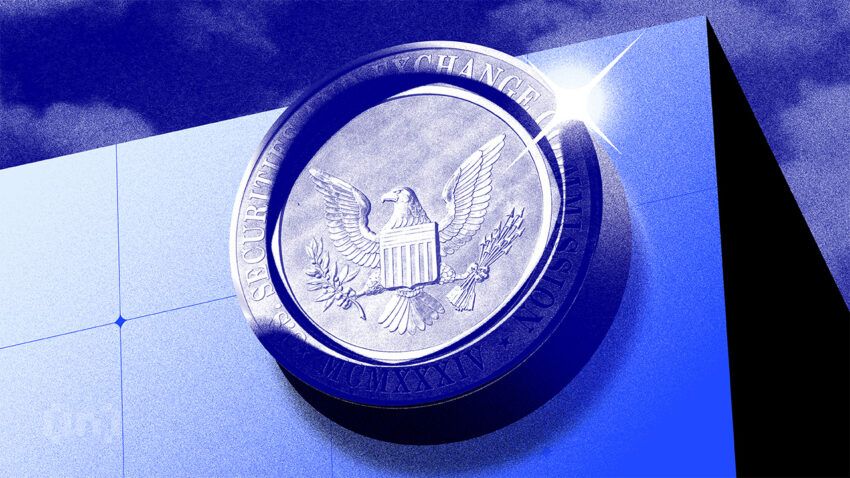Cryptocurrencies are gaining popularity worldwide, capturing the interest of many new investors drawn to these digital assets’ potential benefits. If you’re a beginner looking to educate yourself about the cryptocurrency market, this guide is designed to introduce you to the top crypto exchanges in the U.S., helping you to start your investment journey in this emerging market.
The IRS’s approach to cryptocurrencies

The Internal Revenue Service (IRS) classifies cryptocurrencies as property for federal tax purposes. Consequently, the general tax principles that apply to property transactions also apply to virtual currency transactions. The IRS requires 1099-B forms for reporting the sale of stocks, bonds, crypto, or other securities. If you engage in cryptocurrency transactions, your exchange may issue you a 1099-B form, which records asset sales or disposals, including cost basis and gains or losses. However, you do not need to receive Form 1099-B from your exchange to report cryptocurrency taxes, as not all exchanges provide it.
Given Bitcoin’s role in offering stability and serving as a hedge against risk, it’s no surprise that interest in acquiring cryptocurrencies is growing. For those looking to enter the market, selecting a reliable crypto trading platform is essential for managing and safeguarding your digital assets.
Top exchanges to buy crypto in the U.S.
Here are some prime examples of the top cryptocurrency exchanges in the United States. These platforms are recognized for their reliability and reputable services in the crypto market.
1. Coinbase
Coinbase is probably the best exchange for you if you’re an aspiring crypto investor. The exchange is one of the most popular worldwide, with over 100 cryptocurrencies supported and a customer base of over 300 million.
The exchange started in 2012, making it one of the oldest crypto exchanges. The fact that it has such a track record is laudable. Coinbase offers several services, namely:
- Coinbase Prime: Brokerage is the core of Coinbase’s offering. The company has a brokerage service that allows users to buy and sell cryptocurrencies, and users value it for its easy-to-use interface. Note that the exchange stores your cryptocurrencies for you.
- Coinbase Pro: This is Coinbase’s trading service. While the brokerage service works best for beginners, Coinbase Pro targets experienced, sophisticated users more. The service allows you to trade Bitcoin with competitive fees and several advanced trading tools.
- Coinbase Wallet: The company introduced its independent mobile wallet in 2018. The service is available for iOS and Android users, and it stores your assets on your device. So, you have access to the funds alone.
- Merchant solutions: Businesspeople who want to accept Bitcoin at their stores can also use Coinbase’s merchant solutions. The service provides a plug-in allowing shops on top content management systems (including WooCommerce and Shopify) to integrate Bitcoin payments seamlessly.
- Custodial services: Coinbase’s custody service allows institutional investors to store their assets easily.
Pros
- Relatively low transaction and trading fees
- Intuitive mobile app
- Great user interface
- Suitable for newbie traders
Cons
- Subpar customer support
- High level of oversight
2. Kraken

Kraken is another top exchange that crypto enthusiasts can easily get on. The company is headquartered in San Francisco – like Coinbase. It’s also got an excellent track record, so you have the legitimacy you need to feel secure.
The exchange started operating in 2011 and works across the U.S. and many other countries. Note, however, that it’s unavailable in New York due to the BitLicense restriction. Kraken provides its customers with an advanced trading platform., where they can access margin and spot trading services. The interface is not as user-friendly as Coinbase. The design is more skewed towards advanced traders.
The exchange also offers Over-the-Counter (OTC) services for high-volume traders (essentially, traders with over $100,000). The traders who make frequent high-volume trades could also get dedicated account managers to interface with 1-on-1.
Pros
- Advanced trading options
- Unique dark pool
- Quick customer support
- Low fees
Cons
- Lengthy registration process
- Not suitable for newbie Bitcoin users
3. eToro
eToro is a social trading and investment platform that offers a variety of financial instruments, including cryptocurrencies. It’s known for its unique social trading features, which allow users to follow and copy the trades of experienced investors.
eToro is popular among novice and experienced investors because it offers a user-friendly interface and a community-driven approach to trading and investing. eToro operates as a multi-asset brokerage. Unlike many exchanges, The platform segregates users’ assets from its own. So, in the event that the company goes bankrupt, users retain their assets.
Pros
- Multi-factor authentication account security
- Crypto
- Social trading
Cons
- 1% buy and sell fee on crypto
- Account inactivity fee
Cryptocurrency is offered by eToro USA LLC (“the MSB”) (NMLS: 1769299) and is not FDIC or SIPC insured. Investing involves risk.
4. Uphold
Uphold is a digital money platform offering financial services, including cryptocurrency trading, payments, and remittances. The company was founded by Halsey Minor, co-founder of CNET, in 2013 and was previously renamed Bitreserve. It is based in Charleston, South Carolina, but serves customers globally.
Uphold allows users to buy, hold, convert, and transact across various assets like cryptocurrencies, precious metals, and fiat currencies. The platform is known for its ease of use and the ability to convert between asset classes seamlessly. The fees on the platform are:
- Stablecoins and major market: 0.25%
- BTC, ETH: 1.4% – 1.6%
- Altcoins: 1.9% – 2.5%
- Precious metals: 1.9% – 2.5%
Pros
- Supports a variety of financial assets
- Trade between asset types easily
- Vault custodial services
Cons
- Fees are relatively high compared to competitors
The challenges of crypto regulation

The cryptocurrency industry in the United States has been on a roller-coaster ride, but adoption has continued to increase, even among institutions and high-net-worth individuals. However, the government hasn’t been able to create a comprehensive regulatory landscape for cryptocurrencies.
As Bitcoin grew in popularity, tax authorities and law enforcement agencies worldwide have tried to grasp how they work to develop laws to govern them. Thus, the legality of Bitcoin has always depended primarily on a person’s location.
Some countries have proactively adopted digital assets, thus creating regulatory frameworks for them much quicker. In this regard, the United States continues to lag. While the country has immense potential to lead crypto adoption worldwide, Capitol Hill and Washington haven’t been as proactive as they could be.
Crypto regulation across the United States
Bitcoin is frequently used in the U.S., and this is evident in the increasing number of merchants accepting crypto and the rise in Bitcoin ATMs. The federal government’s inability to adopt digital assets hasn’t stopped crypto enthusiasts from using them.
However, the importance of government regulation and adoption remains a significant stumbling block to the level of adoption that industry experts would like to see.
While the federal government drags its feet on regulating the sector, some American states have taken the initiative to develop some form of crypto legislation. They include:
1. Wyoming
The state became a top destination for crypto companies when Wyoming passed a revolutionary cryptocurrency bill that clarified the legal status of cryptocurrencies and recognized them as money. The bill essentially exempted utility tokens that aren’t marketed as investment vehicles from securities laws. The bill made Wyoming the first elected body to differentiate utility tokens from commodities and securities.
Wyoming has several other active pro-crypto bills. In February 2019, the state Senate signed a bill allowing banks to administer digital assets. Thus, these banks can qualify with the Securities and Exchange Commission rules on becoming asset custodians.
2. Colorado
Colorado has a history of adopting paradigm-shifting laws and projects. Crypto wasn’t different as well. The topic of Bitcoin legalization was a hot-button issue in the state’s gubernatorial election for 2018 when two candidates highlighted the importance of blockchain and crypto for the state.
The eventual winner, Jared Polis, is also a pro-crypto politician whose goal was to create a safe harbor that exempts digital assets from state money transmission laws.
In March 2019, Polis signed the Colorado Digital Token Act, which exempts digital assets from several securities laws. Effective from August 2, 2019, several digital assets designed for “consumptive purposes” qualified from securities exemptions.
3. California

Home to the world-famous Silicon Valley, it’s no surprise that California will be willing to embrace innovative technologies.
The state became one of the first to roll out an iteration of crypto regulation. In 2014, former Governor Jerry Brown signed a bill ensuring that “various forms of alternative currency, including digital money,” can be used to make payments and purchases.
While the state has yet to make much progress concerning regulating the industry, it is still a top destination for companies. Some of the largest crypto companies in the country. Kraken and Ripple both have their headquarters in California.
4. New York
New York is the world’s business capital. While the traditional financial space has thrived in the state, cryptocurrencies have been a bit of a mixed bag.
In terms of positives, New York does have a robust framework in place for crypto companies that would like to set up shop. In 2015, the New York Department of Financial Services (NYDFS) issued the Virtual Currency License (also known as the BitLicense). Any crypto company that hopes to operate in the state must apply for the license and get an audit from the Department.
Several crypto companies have gotten approval from the Department. The Gemini Exchange obtained the BitLicense in 2015. Others had to game the licensure structure through acquisition. For instance, Coinbase acquired Tagomi, a brokerage firm licensed to operate in New York.
However, the license has been a contentious issue at best. Many companies that failed to get accepted have cited that the license disclosure and consumer-protection requirements are overly stringent, thus accusing the Department of extreme jurisdictional overreach.
The debates over whether the BitLicense requirements are fair will continue for as long as New York remains a top market for crypto companies. While it provides a structure for operation in the state’s crypto industry, the license does appear to be turning a lot of companies away.
5. Ohio
Ohio does have a lot of work to do before it becomes a federal crypto hub in the United States. However, the state had made some progress before taking four steps backward. One area the Buckeye State focused on was on crypto-based taxes. The state created a portal—OhioCrypto.com—where companies in Ohio could pay taxes in Bitcoin.
Top e-commerce company Overstock took the initiative. In January 2019, the company’s former founder and chief executive, Patrick Byrne, announced in an investor update that the firm would be filing its commercial activity taxes in the state via the website.
The announcement was filled with fanfare until it was suspended by Ohio’s Treasurer Robert Sprague some months after launch over irregularities in the selection process of the payment processor used for the service.
6. Texas
Texas was one of the first states to awaken to the prospect of cryptocurrencies. Like the other states on the list, it hasn’t developed into a full crypto hub – although it’s also making some significant moves.
In April 2019, the state government passed a memorandum declaring that individuals and companies didn’t require a money transmitter license to sell Bitcoin or any other cryptocurrency.
Since then, Texas hasn’t done much to regulate the sector, but the state has attracted bitcoin mining of late. Despite the hot climate, Texas has become a frontier for mining in the U.S. It has attracted names like Bitmain, Layer1, and others to set up shop in the state, taking advantage of the abundance of land and competitive electricity rates.
Since 2020, Texas has made significant strides in the realm of cryptocurrency regulation. House Bill 4474 was a key legislative move, integrating cryptocurrencies into the state’s commercial law and providing a legal definition for “virtual currency.” This bill notably helped facilitate the integration of digital assets into Texas’s commercial activities.
Additionally, the Texas Banking Commissioner and the Texas Department of Banking authorized state-chartered banks to offer cryptocurrency custody services under specific conditions
Is it legal to buy Bitcoin in the U.S.?

While states appear to be leading the charge regarding crypto adoption, the federal government has also been moving – albeit much slower.
IRS moves forward with crypto tax clarity
- Although there’s no national framework for adoption, one area where the government appears to have moved quickly has been in the taxation space. The IRS published Revenue Ruling 2019-24, which addresses several questions concerning tax compliance, viz cryptocurrency airdrops and crypto forks.
- The guidance gave insights on questions concerning crypto transmissions between investors – especially cryptocurrencies, from capital assets.
- It addressed the various means of valuing income received as cryptocurrencies, the tax liability implications of hard forks, and how to calculate taxable gains in the event of cryptocurrency sales.
- The ruling followed Notice 2014-21, which set “general principles of tax law to determine that virtual currency is property for federal tax purposes.”
- While the letter praised the IRS for acting swiftly on the issue of regulations, it also alluded that several items were left unattended. For instance, the ruling didn’t provide clarity on various crypto-related financial activities, including interest from digital asset deposits and crypto-based income.
- According to the Statement of Work, the third party must aggregate, value, and compute the gains and losses incurred by individuals’ cryptocurrency transactions.
Crypto comes for Capitol Hill
There’s been an increased cryptocurrency presence at the Senate level. In 2023, Kelly Loeffler, the former chief executive of institutional investment company Bakkt, was appointed to the United States Senate.
Several other top administration positions include Brian Brooks, the Acting Comptroller of the Currency. Brooks was appointed in December 2023, a few months after being tapped from Coinbase, where he served as general counsel. Before his government assignment, he was general counsel to Coinbase.
Several members of Capitol Hill have also shown a disposition towards progressive crypto regulations. In 2023, Rep. Tom Emmer (R-Minn.) was working on introducing a bill to Congress that would protect token sales from excessive SEC overreach. Rep. Warren Davidson (R-OH) also criticized Congress for not acting quickly enough to clarify crypto regulations in the United States. As he explained, the lack of clarity is hurting innovation in the industry and forcing companies out of the country.
The probability of these individuals bringing change is yet to be seen. But, having pro-crypto leaders in government is always a positive for the industry.
Crypto exchanges in the U.S. are showing promise
Cryptocurrencies have grown significantly over the past few years. While several issues must be addressed before becoming part of the American financial system, they’ve shown a significant amount of promise so far. More states have recognized their value, and investors have swooped in en masse. Potential investors will have various platforms to transact and trade using these assets. However, the platforms mentioned stand out for providing superior service in this field.
Frequently asked questions
Are cryptocurrency exchanges legal in the U.S.?
Are there laws on crypto in the U.S.?
How do I choose an exchange in the U.S.?
Disclaimer
In line with the Trust Project guidelines, the educational content on this website is offered in good faith and for general information purposes only. BeInCrypto prioritizes providing high-quality information, taking the time to research and create informative content for readers. While partners may reward the company with commissions for placements in articles, these commissions do not influence the unbiased, honest, and helpful content creation process. Any action taken by the reader based on this information is strictly at their own risk. Please note that our Terms and Conditions, Privacy Policy, and Disclaimers have been updated.





